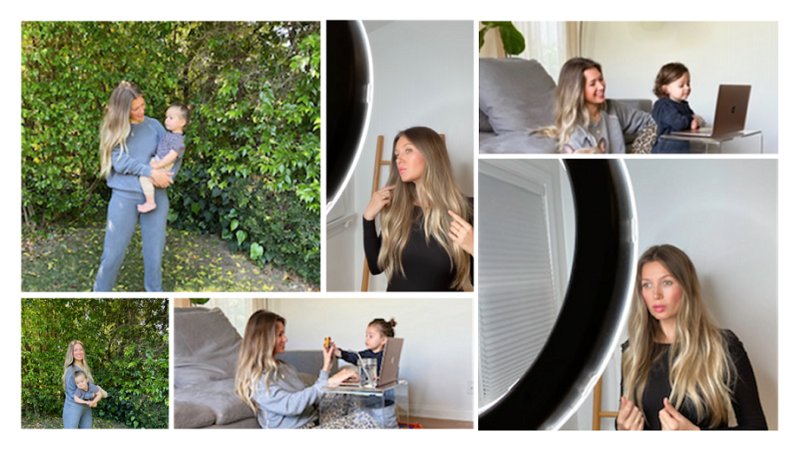Katie and Nicole: A Look at Pregnancy in Your Twenties vs. Your Forties, Part One
The personal histories of Nicole Kidman and Katie Holmes are forever linked–Nicole was once Mrs. Tom Cruise; Katie now holds that title. But these two members of Hollywood royalty have taken very different paths to building their families. Nicole, who has two adopted children, Connor and Isabella, is giving birth for the first time at 40, while Katie had her daughter Suri when she was age 27. Surely, these two women will have significantly different experiences with pregnancy, motherhood and getting their bodies back, mostly due to the differences in the age at which they first gave birth.
Hollywood stars of every age are getting pregnant these days. Young celebrities Christina Aguilera and Nicole Richie just had their little ones, both becoming first-time moms at age 27, and Jessica Alba, who is the same age, expects to give birth early this summer. However, twenty-somethings aren’t the only ones experiencing the joys of first-time pregnancy and mommyhood. Women such as Nicole, Jennifer Lopez, 38, and Halle Berry, 40 just gave birth to their first children as well – and they are all about 10 years older than than Christina, Nicole, and Jessica. And let’s not forget Holly Hunter, Jane Seymour, Geena Davis and Nancy Grace, who were all in their mid-to-late forties when they each gave birth to twins.
I enlisted the experts to find out what makes getting pregnant in a woman’s 20s different from being a first-time mom in one’s 40s, and gathered some tips on how, at both ages, women can get the most out of the nine months and beyond. In part one of three in this series, the focus is on timing—when women should ideally have children for optimal family planning.
Katie and Nicole share a history with Tom Cruise. They also have in common their long, lean shapes, and flair for glamorous style. But their bodies are at very different stages when it comes to their fertility experiences. You wouldn’t know just by the photos that there is an 11-year age difference between the actresses, but no amount of pampering can keep their eggs from showing how mature they really are. In our post-feministic society, women have been told to shape their careers while they are young and put off having children. For actresses, this plan is ideal, as there are often more roles for younger women. However, new research is now telling us that babies can’t always wait.
Our fertility expert Dr. Bradford Kolb, who runs the Huntington Reproductive clinic in Pasadena, CA, and writes Modern Mom’s hugely popular column, Dr. Fertility, says that feminism was, “great in giving women choice, great in giving them equality in society. Now we’ve empowered women in a very different way.” But in light of the new research and gained knowledge about fertility today, he wonders “do we need to take a second look at everything?”
Dr. Kolb thinks we do, as do other fertility experts. Writing in the British Medical Journal, Dr. Bewley and colleagues said: “If you want a family – and most people want a couple of children – and you are going to complete your childbearing by 35 and leave time for recovery in between, you would be wise to start before 30. People are aware that aging is a bad thing but the bio-panic women had on their 30th birthday has moved up to the 40th birthday.” The doctors continued, noting that mate selections plays a role in when women bear children: “Surveys of older mothers show that half say that they delayed childbearing because they had not met a suitable partner. Maybe instead of waiting for Mr. Right they ought to wait for Mr. Good-Enough if they want children.” The implication here is that, to avoid potential complications, Jennifer Lopez and Halle Berry should have had kids with previous flames who weren’t ideal daddies — that would have meant Diddy, Cris Judd or Ben Affleck for J. Lo or philandering Eric Benet for Halle.
The statement in the British Medical Journal caused an uproar, and many gave the doctors flack for encouraging women to settle. But there is some value in this message. Just like the rest of us, our favorite Hollywood actresses can’t fight biology. Women have a biological time line and, simply put, fertility declines after a certain age. We are born with all the eggs we will have in their lifetimes. Thus, a 40-year-old woman carries 40-year-old eggs. A recent article in the UK Independent noted that women shouldn’t wait, simply because if they wait too long, they won’t be able to conceive. Fertility peaks in the mid-20s. At 30, three-quarters of women will get pregnant within a year, but this falls to two-thirds at 35. After 35, the numbers drop even more dramatically.
Other risk factors rise after age 35 as well. Referencing a study by the Center for Disease Control, Dr. Kolb says, “The older the eggs get, the higher the frequency of genetic defects that cause miscarriages and lower pregnancy rates”
Ideally, Dr. Kolb says that women shouldn’t put having a family on hold. “When you talk about when to have kids, biology says twenties, early thirties, but for a lot of people, career, society, finances say 40s and the two don’t necessarily cooperate. We’ve got to get them close together.” He says women see older celebs getting pregnant and this contributes to the ideology that encourages women to wait. Dr. Kolb is disheartened by the fact that celebs don’t always disclose if they have undergone fertility treatments, especially if they are using donor eggs, as he suspects those first-time pregnant celebrities over 40 often do. He notes that if women were truly able to get pregnant at 40 easily, he would be out of a job.
His quandary as a fertility doc is partly due to the “image these celebrities are portraying,” he says. “In one sense, I understand you have privacy, on another sense, you’re a public figure and I think you have a responsibility to be a little more forthcoming about some of the struggles…I have patients in here all the time that say ‘so and so got pregnant, she’s 45.'” Dr. Kolb said that women like Geena Davis and Jennifer Lopez, who are having twins after 35, have typically undergone some form of fertility treatment – although Jennifer tells People magazine that her pregnancy was 100% natural. What we will never know in many cases, is that many older celebrities, not able to conceive with their own eggs, have opted to bear children using donor eggs from younger women – an expensive, emotionally demanding and time-consuming process.
What should women do to avoid complications and having to resort to expensive fertility treatments? If you know that you want more children one day, but don’t plan to get pregnant again until after 35, experts agree that the best option is to freeze your eggs and store them when you are young.
When Nicole Kidman gives birth late this summer to her first child, she will get to experience one of the greatest gifts of being a woman —bringing new life into the world. The road to getting there—marriage, miscarriage, adoption, divorce, and finding new love with Keith–was a long one. While Katie Holmes had the luxury of young eggs and a seeming ease of getting pregnant, we will never know what kind of help, if any, Nicole got when she got pregnant for the first time at 40. The important thing, for both celebumoms and the rest of us, is that we realize what’s at stake at both ages. Hopefully, our generation will figure out how to have their career and their brood too. Like most aspects of being moms today, the road to motherhood requires balance as well.


